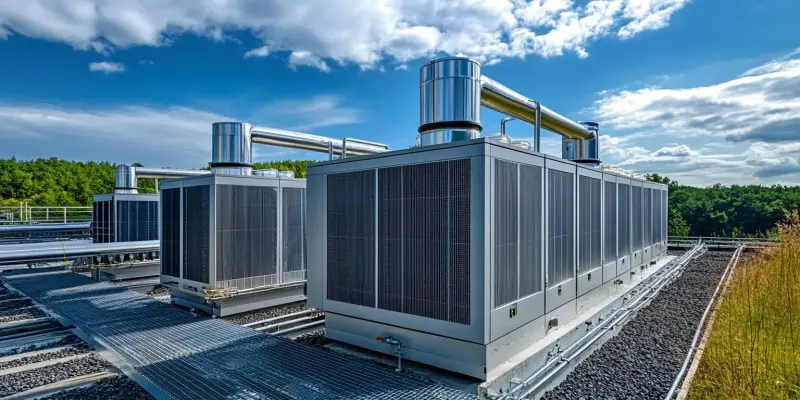In the growing quest to power AI data centers sustainably, geothermal energy stands out as a compelling option with substantial potential. Researchers from the Rhodium Group recently explored this possibility and highlighted a significant opportunity for geothermal energy to support the increasing energy demands of data centers in the United States. They project that a vast majority of data center energy needs could be met by a substantial expansion of behind-the-meter geothermal power, thus providing a glimpse into a sustainable and energy-efficient future for the tech industry.
The Promise of Geothermal Energy
The United States currently has around 4 GW of geothermal capacity, mainly derived from conventional hydrothermal systems located in states such as California and Nevada. However, advancements in geothermal technologies that involve deeper excavation, hydraulic fracturing, and horizontal drilling have the potential to make this energy source feasible in many more locations, including areas near data centers. Behind-the-meter solutions offer an attractive advantage, allowing companies to bypass the grid connection delays that typically hinder most power projects. By situating geothermal resources directly on data center sites, businesses could significantly reduce their reliance on traditional energy sources and achieve greater energy autonomy.
Using data from the Lawrence Berkeley National Laboratory, the Rhodium Group projects that if the current clustering patterns of data centers continue, 55-64% of projected growth at hyperscale facilities could be met by behind-the-meter geothermal power. This could translate to an additional 15-17 GW of new geothermal capacity. Notably, geothermal energy could cover 100% of anticipated growth in 13 of the 15 largest markets and at least 15% in 20 of 28 markets nationally. These statistics underscore the massive potential of geothermal energy to address the burgeoning power requirements of AI-driven data centers.
Potential Implementation and Challenges
The researchers also suggest a strategic approach by developers, wherein prioritizing geothermal resources when determining data center locations could enable geothermal power to meet all projected load growth by the early 2030s. Furthermore, there exists potential to reduce electric load significantly through the use of geothermal heat pumps for cooling data centers. This dual application could transform geothermal energy into a cornerstone of sustainable data center operations, offering both power generation and thermal management solutions.
However, realizing this potential is not without challenges. Issues such as permitting, securing resource rights, scarcity of subsurface data, supply chain limitations, requisite R&D investments, and the risks associated with federal incentives pose significant hurdles. To overcome these obstacles, the report urges data center developers, tech companies, and geothermal energy developers to collaborate actively. By forging partnerships and pooling resources, these stakeholders can catalyze the development of geothermal energy infrastructure and unlock its full potential for data center applications.
Tech Giants Lead the Way
As the tech industry continues to grow, finding sustainable ways to power AI data centers is becoming increasingly critical. Geothermal energy is emerging as a particularly promising solution. Researchers from the Rhodium Group have delved into this potential and discovered a significant opportunity for geothermal energy to cater to the ever-growing energy demands of data centers across the United States. According to their findings, a significant portion of the energy needs for data centers could be supplied by a considerable expansion of behind-the-meter geothermal power. This presents a possible sustainable and energy-efficient future for the tech industry, reducing its reliance on traditional energy sources and contributing to environmental conservation. By tapping into the Earth’s natural heat, data centers can operate more efficiently and sustainably, highlighting geothermal energy’s viability as a key contributor to a greener future. This exploration and acknowledgment by experts underscore the critical role that geothermal energy can play in the evolving landscape of data center energy consumption.

